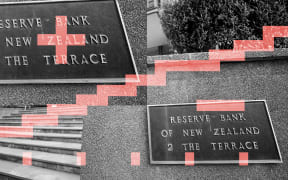
Photo: 123RF
Inflation has fallen to its lowest level since late 2021, but domestic pressures remain high.
Stats NZ said consumer prices rose 1.1 percent for the three months ended June, with the annual rate falling to 6 percent from 6.7 percent.
The figure was slightly above analysts' expectations of 1 percent, but just below the Reserve Bank's May forecast of 1.1 percent.
"Prices are still increasing at rates not seen since the 1990s but are rising at a lower rate than the last few quarters," Stats NZ consumers prices senior manager Nicola Growden said.
The main drivers were the familiar factors - food prices, building costs, rents, insurance, and energy, which were partly offset by a fall in transport costs, fuel, and telecommunications.
Food prices were up 12.3 percent for the year, building costs by 7.8 percent, and rents by more than 4 percent.
The so-called non-tradables inflation - a measure of domestic inflation - rose 6.6 percent, while imported inflation - tradables - was 5.2 percent.
"Domestic inflation remains high, sticky and is lagging the pull back we've seen in recent pricing surveys," ASB senior economist Kim Mundy said.
She said core inflation measures, which eliminate more volatile components, were little changed at around 6 percent and in some cases had edged higher, which would make the Reserve Bank (RBNZ) nervous.
"Sticky non-tradable inflation will keep the RBNZ on alert and of the view that monetary policy will need to remain restrictive for the foreseeable future."
Last week, the RBNZ said in its latest statement that it did not expect inflation back in its target band until late 2024, and the 5.5 percent official cash rate would need to stay high for an extended period.
Mundy said the RBNZ could not and would not think it has inflation on the run, but doubted, at this stage, the need for another rate rise.
However, ANZ senior economist Miles Workman said the inflation risks were firmly to the upside.
"We maintain our forecast that the RBNZ is not in fact done hiking yet, with a 25 basis point hike pencilled in for November."
The New Zealand dollar spiked about a quarter of a cent higher against the US dollar and wholesale interest rates also rose as investors pushed out the chances of rate cuts well into next year.
Finance Minister Grant Robertson said the inflation fall was encouraging.
"Inflation is still too high and we are committed to helping bring down the cost of living and supporting those doing it tough."
"The government is also doing its bit to ease inflation pressures by reducing spending to more normal levels and reduce overall demand in the economy, with real government consumption forecast to fall by 5 percent by the beginning of 2025."
Robertson said there were also positive signs such as employment growth, improving business confidence, increasing tourism and migration, and low public debt.






